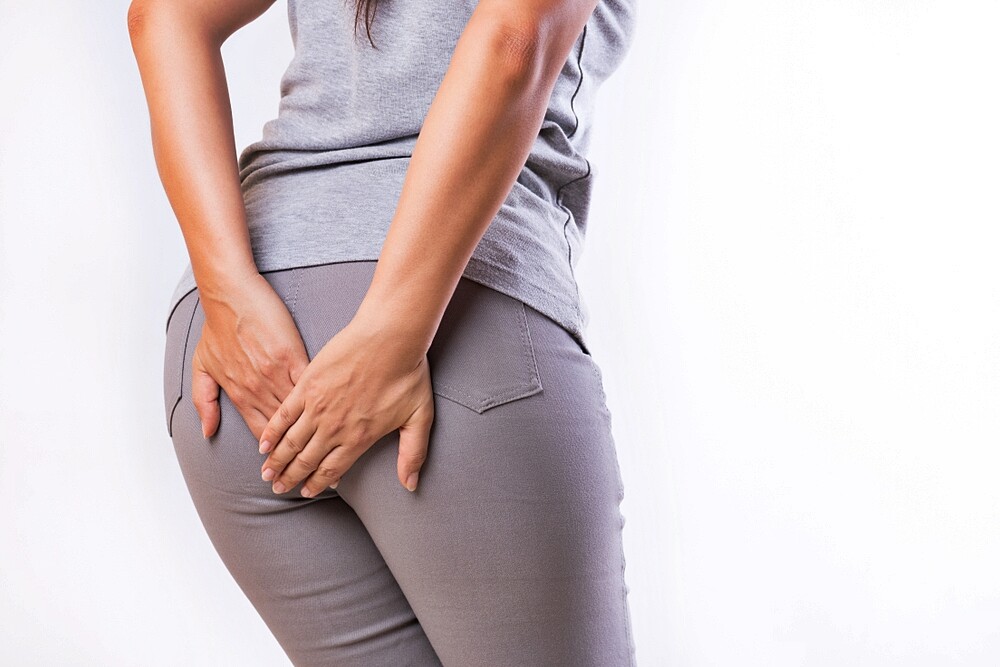Nutrition, ointments, etc: home remedies for hemorrhoids can reduce the symptoms – and also prevent them. We will tell you the best ways and means.
Causes and Hemorrhoid Home Remedies
Everyone has hemorrhoids. Namely, the so-called hemorrhoidal network near the intestinal exit: this well-perfused circular tissue pad has the task of securely sealing the rectum to the outside. Hemorrhoids suffer when the pads are enlarged pathologically. This happens when pressure is exerted on the blood vessels for a long time, the blood can no longer drain, the veins widen and the connective tissue, so to speak, wears out. The reason why the upholstery enlarges knottily is too much pressing or re-pressing during bowel movements. This can be particularly the case with (chronic) constipation.
Symptoms
- Wetness in the anal region
- Urge to go to the toilet despite bowel movement
- Feeling of pressure
- Relubricating chair
- Traces of light red blood in the bowel movement
- Burning pain and itching of the anus
Home remedies for Hemorrhoids
Eat high-fibre food
Fibre-rich food makes the stool softer and can prevent constipation. Suitable foods include whole grain products, linseed, psyllium, vegetables and fruit. Olive or linseed oil also aids digestion. Take a tablespoon of it after the meal.
Fluid intake
The intestine can only function properly with sufficient fluid. Drinking a lot is especially important with a high-fiber diet. This allows the swelling substances in the intestine to swell up well and thus work at all. Otherwise there is also a high risk of constipation.
A lot of movement
Exercise supports the intestine by the light muscle movements that transport the intestinal contents further. Without exercise, the intestine becomes sluggish and constipation threatens.
Pillows
A haemorrhoid cushion is quite useful for pain. This inflatable ring does not put any strain on the affected area when sitting.
Hip bath
Especially for weeping hemorrhoids and itching, a sitz bath offers soothing relief. Sitting baths with anti-inflammatory tanning agents such as oak bark extract (e.g. from the pharmacy) are suitable for this purpose.
Shower
After the bowel movement, briefly rinse the anus with cold water and carefully pat dry.
Marigold ointment
Marigold (Calendula) also has an anti-inflammatory effect, promotes wound healing and cares for irritated mucous membranes.
Other ointments
In the case of a haemorrhoidal disease, treatment with other ointments containing the following active ingredients can also help:
- Zinc oxide
- Hamamelis
- Tannins (e.g. oak bark)
- Lidocaine & Cortisone (both prescription)
Keep in mind that creams and ointments soothe but do not cure. In order to rule out worse causes – i.e. other diseases – a visit to the doctor is essential.
Things you should avoid
Laxatives
Care should be taken with laxatives, as they can – after prolonged use – make the bowel sluggish and thus threaten to constipate again. Food such as sauerkraut and prunes have a natural laxative effect.
Stuffing food
Stuffy foods, such as sweets and white flour products, are also bad for the intestines.
Coffee and spicy food
Both can irritate the mucous membrane when leaving the intestine – anything but pleasant in a haemorrhoidal condition.
Alcohol
Alcohol stimulates the blood circulation, which leads to further swelling of the hemorrhoids and worsens the symptoms.
Moist toilet paper
The moist toilet paper can further irritate the hemorrhoids due to its additives – so leave it out and use a moist cloth instead.
This favours hemorrhoids
Constipation
It has already been mentioned several times: Constipation promotes haemorrhoidal complaints due to excessive pressing during bowel movements.
Connective tissue weakness
A congenital weakness of the connective tissue leads to a slackening of the sphincters. However, this only affects a small percentage of those affected.
Lack of exercise
Long periods of sitting and generally little movement are bad for the intestines. It is therefore important to create balance and promote intestinal movement so that the bowel does not become sluggish.
Overweight
Being overweight is a strain on the pelvic floor: the weight presses on the rectum and impedes blood circulation – as a result, the vessels in the anal region can become enlarged. Even if it doesn’t happen overnight: losing weight through healthy eating and sport is the best way.

